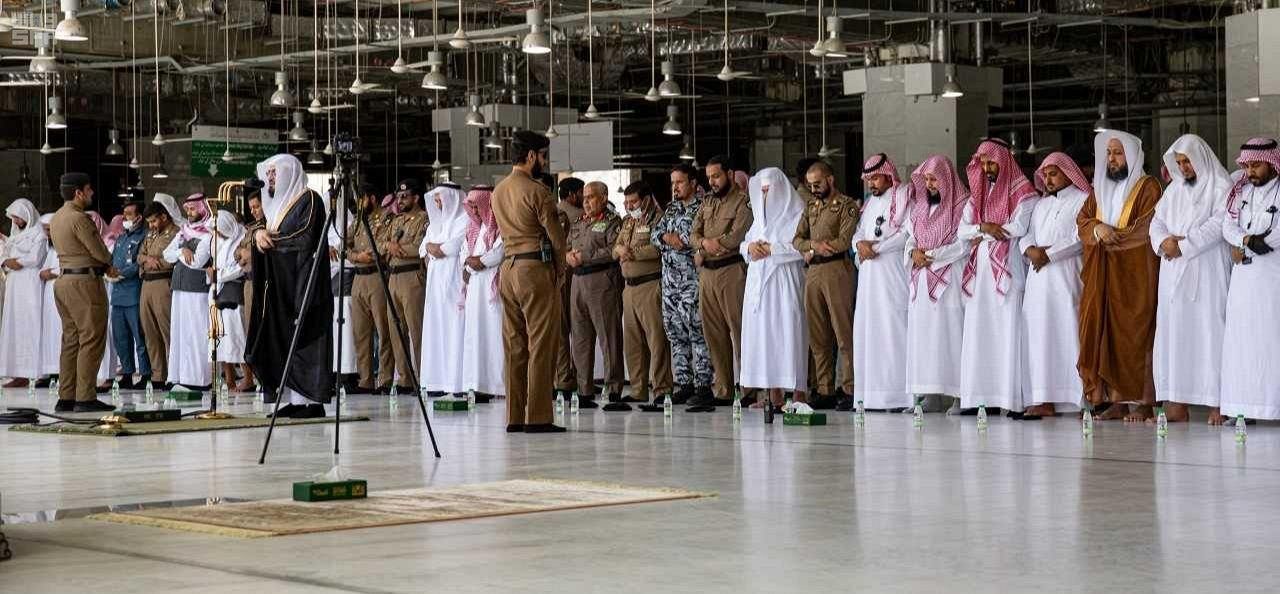
March 15 marks first anniversary of deadly assault by a white supremacist on two mosques
Gamal Fouda says tolerance, understanding and dialogue are key to communicating with people of all backgrounds
DUBAI: “Religions can bring peace to the world — if we find the correct representatives of these religions.”
This was the message of Sheikh Gamal Fouda, imam of Al-Noor mosque in the New Zealand city of Christchurch, the target of a terror attack one year ago on Sunday.
The shootings at the mosque as well as the nearby Linwood Islamic Center on March 15, 2019, left 51 people dead and 49 wounded.
At the World Tolerance Summit in Dubai in November, Fouda recalled the moment he first saw the alleged gunman who opened fire on worshippers at the two mosques during Friday prayers.
“What happened was a horrific thing that I saw with my own eyes,” Fouda said.
“A man full of rage and anger came into our mosque, carrying weapons, directing them at the first person he met at the door.”
Fouda described the attacker as a “brainwashed” man who was “full of hatred.”
He recalled scenes of worshippers falling to the ground as they were gunned down by the attacker, who ironically was greeted with the words “hello, brother” at the mosque entrance.
“That is tolerance and that is what Islam is — when a person who is coming to kill people is greeted by the person standing in the front door,” said Fouda.
Calling on political leaders to lead by example, and embrace the diverse cultures and faiths of the world, Fouda praised New Zealand Prime Minister Jacinda Ardern for showing solidarity with the small immigrant community in Christchurch after what she called one of the country’s “darkest days.”
‘If you are Muslim, I would like you to visit a non-Muslim today and say to her or him, I love you because this is my religion.’
The imam described Ardern’s address to the crowd — “New Zealand mourns with you, we are one” — as a message of inspiration to fellow leaders around the world.
Ardern received global praise for her gesture of solidarity. The New Zealand leader wore a headscarf during the memorial service that was followed by a call to prayer and a two-minute silence — events that were broadcast on national television.
Her example was followed by many women in New Zealand, who posted images on social media of themselves wearing headscarves and using the hashtags #HeadscarfForHarmony and #ScarvesInSolidarity.
“That’s what political leaders need to do — they have the power and can move things, they have the magic and they can change the scenario,” Fouda told the Dubai forum.
In his view, the tragic events of a year ago underscored the importance of “tolerance, understanding and dialogue,” which he believes are the basis of communicating with people of all backgrounds.
He said that too often Islam is misunderstood as a religion of “violence and extreme thoughts.”
Fouda said that misinterpretations of the religion in the West are the result of language barriers. “Sometimes those who introduce Islam don’t have the correct term (or language) to explain what Islam is.”
One example is found in some Islamic books, where “jihad” is referred to as “holy war.”
“This is totally incorrect. There is no holy war in Islam. All wars are unholy,” he said.
He suggested that “peace education” be introduced in primary schools to instil values such as tolerance in children from an early age age.
Fouda concluded his address on an inspirational note, saying: “If you are Muslim, I would like you to visit a non-Muslim today and say to her or him I love you because this is my religion.”
He added: “And if you are a non-Muslim, I would also like you to go back to your country and visit an Islamic center and tell them that you love them and are ready to start a project with them. Do something human.”









